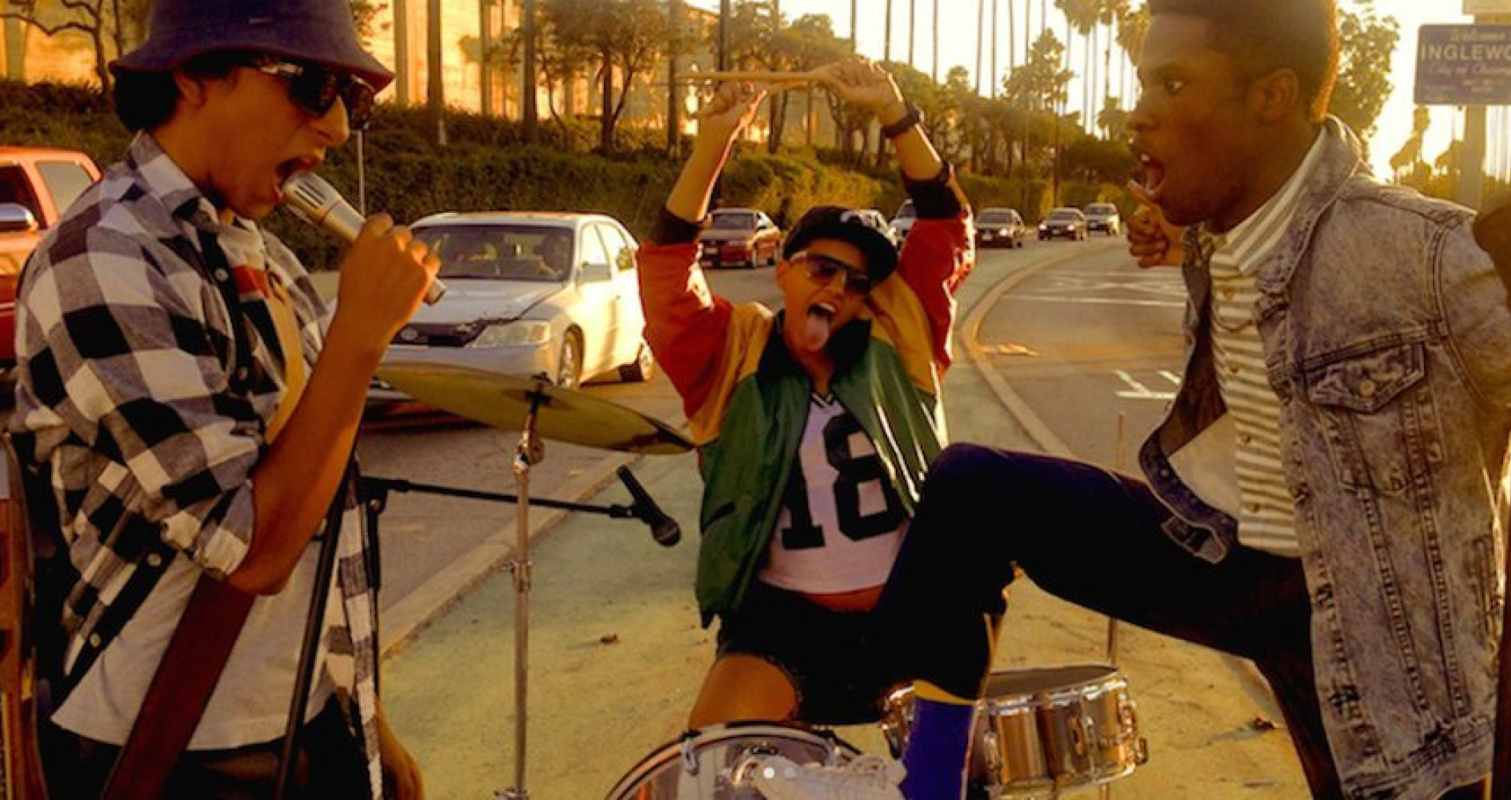Coming of age stories. Mean Girls packaging or Boyz n the Hood. As long as the characters are not entirely saints or sinners, audiences are down to follow along. Director Rick Famuyiwa uses this flexible characterization in Dope to underscore our inability to really know a person, especially if their place in your life is partitioned.
Dope follows three best friends as they complete their final months of high school. Main character Malcolm is a 90s hip hop junkie like his friends Diggy and Jib, but what sets him apart are his perfect SAT scores and desire to go to Harvard. Malcolm’s mother appears a few times in the film, highlighting the fact that the friends often rely on one another for guidance. The beauty of these three young actors is their ability to display a youthful essence, soaking up their environment, but consciously choosing which influences win out. Their characters are scared of the future and the present, attempting to impress friends and adults around them by being brave and confident, while still staying true to themselves. We get the sense that they’ve never had a battle they could win with merely bravery.
Before their real adventure begins, we witness them avoiding local gangs, school bullies, and overly discerning teachers. It’s amazing that the teens can even get to and from class with the materials necessary to pass a test, considering they’re consistently bombarded and ransacked in the hallways and on their way home. The cast does a wonderful job with their roles as hope for them to win just one of an assortment of battles, whether it’s successfully catching the bus or landing a flame’s phone number, ebbs and flows. It’s clear, in these moments, that they are the underdogs, our heroes. But we can’t yet assess what their journey will be and what tools they’ll use while on it.
The movie wonderfully embellishes all of those hoops that a high school senior often goes through, such as when Malcolm’s counselor sets up a meeting with a Harvard graduate but also reminds Malcolm that he likely won’t get into the school. Malcolm doesn’t let this faze him and plans to slay the interview, but he becomes distracted by a girl he’s always wanted to talk to. Their conversation becomes dicey when another man who competes for her attention pressures Malcolm into being an “oral note passer.” It’s so easy to give Malcolm grief for caving in, but we all know that life is more complex than that: Malcolm gets invited to the guy’s birthday party. His friends are eventually convinced to attend and they all release some pent-up stress. But after a police raid breaks up the party, the story is set. There’s a shootout that the three run from, but not before the main character grabs his bookbag, which was surreptitiously stashed with a few objects, all of which are questionable. The teens spend the rest of the film attempting to return drugs, a burner phone, and a handgun, as they desperately try to leave this newfound world.

The characters remind us that many teenagers really do have dreams and a work ethic, but sometimes those dreams become misguided and misdirected, their actions illegal. Teenagers these days are trying to be something by embodying vague notions of role models to the best of their ability but without any guidance. Should we be surprised when Malcolm convinces his two best friends to go to that local drug dealer’s birthday party, even when it ends up getting busted for drugs?
Dope and its student body remind me of the 4% of each of my students that I get to see. Let’s say 5% to be generous. Most high school classes are slightly over or slightly under one hour. I only ever did extracurricular work with marching bands, so I spent about one hour out of each weekday with each of my students. For this one hour, they had to be many things: on-time, awake, prepared, chockfull, insightful. But what about their remaining 95% that I wasn’t privy to? The hardest lesson and most valuable lesson of teaching is learning that you don’t know your students. You don’t know why they didn’t do their homework or what time they went to bed or when they got off work or how long it took them to dress their rambunctious sibling for school or how many family members they had to beg for a ride. Who are they really dreaming of right before they snap back to class discussion? Does that person even care about my students’ choices?
As the characters of Dope meander their hometown of Inglewood, they have to grow up, and yes, they do have role models, but no one really wants to hear the teens’ truth, the justification for their choices. The three consider going to the police with their findings, but question how believable that would be. They also consider merely giving the drugs to the first person to call the burner phone, but they’re swayed away from the decision in order to not incriminate themselves. So within a few weeks, they have to learn to negotiate with drug dealers, felons, addicts, hackers, peddlers, and one another. Much like any young adult now expects, parents, counselors, mentors, and potential significant others don’t take a back seat while you “figure your life out,” even if that includes setting up a scheme to sell drugs online using your high school’s servers, all in exchange for bit coins. If Malcolm, Diggy, and Jig survive this journey, they should be well equipped for the military, college, or any other slice of the real world. That’s how failure works, though. Success too. If the teens don’t “learn” in this classroom, they’ll learn in the next, or the next, or the one after, but the results of the journey are sometimes much more subtle and discreet than any of us realize.